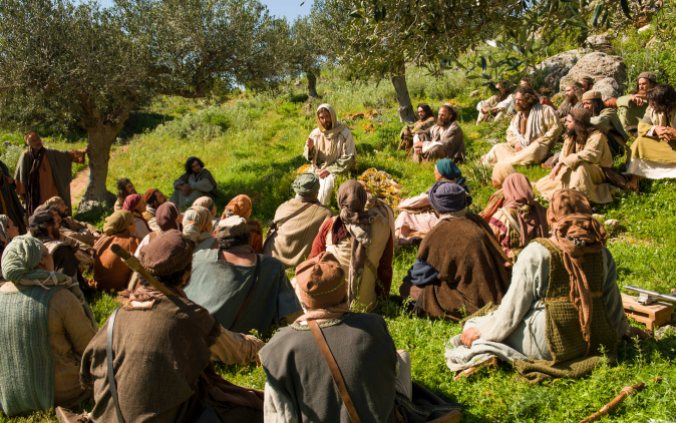
I think it started even before I had children, when my friend, Alice, who had three teenage children of her own, told me all she wanted for them was to raise them to be nice people. She wasn’t aiming them for success as a doctor, lawyer, or Indian Chief—as the singsong jump rope rhyme from childhood went—but what she really wanted was for them to be kind, caring, and responsible adults. Tucking that away because what she said resonated deeply within, and pulling it up to think on it a time or two when my own were toddlers, then tweens, I began to form in my mind what it was that I wanted for my children. Success in terms of financial wealth or status took more and more of a backseat and like my friend, Alice, what became “front and center” for me was for them to be caring and loving. Going one step further though, I wanted them to be Godly people.
But what does that mean? What does being Godly truly mean? When the rubber hits the road, how does that translate into the everyday? When I started thinking about this, what became clear—and what I didn’t realize about myself—was how I internally defined ungodly. And it was ugly, real ugly. Not the definition per se, but the judgment I hung with the meaning. To be ungodly doesn’t mean that someone is wicked, evil, or twisted, but what it truly means is that someone is living without God. To be Godly then, is to have God in your heart with hopefully the end result being a life that, most of the time, is marked with love, joy, peace, patience, kindness, goodness, faithfulness, gentleness, and self-control. And that is what I wanted/want for my children—the resulting fruit of a Godly life because they to belong to Him. To top it off, God produces that for us and in us when we are His. (See Philippians 2:13.)
So, how in the world can we even think or begin to judge one another? If the only difference, the 50/50 possibility is that the one person has the Lord living in his or her heart and the other does not, how can we logically, with our words, our attitudes, our thoughts, or our actions, place judgment on another human being? How can we even begin to climb the ladder of “I’m better than you,” by thinking thoughts like, “I wouldn’t do that; I wouldn’t lie, cheat, or steal? I’m better than that.” But more importantly—how could we, why do we put the rope of judgment around each other’s neck?
Jesus told us He did not come to judge the world, but to save it. (See John 12:47.) If He, our Lord did not come to do that, then how can we even begin to go down that road?
In Matthew 22:37-40, Jesus says that—“You must love the Lord your God with all your heart, all your soul, and all your mind. This is the first and greatest commandment. A second is equally important: ‘Love your neighbor as yourself. The entire law and all the demands of the prophets are based on these two commandments.’” (NLT)
About five years ago, a missionary from one of our church families, just as he stood to lead everyone in prayer at the start of the school day, was fatally shot by one of his students. That following Sunday our pastor teaching about grace, except for prayer for the young man’s family, did not say anything until the very end of the sermon when in conclusion he said something to the effect of, “If you can’t see yourself in the shooter’s shoes, then you don’t understand grace.”
Oh Lord, please help us to see that we could all be standing there. Please give us the grace to forgive and hold each other up in prayer. As my former Pastor Don Seltzer used to pray at the beginning of all his sermons, “Lord, I’m just one beggar showing the other beggars where the bread is,” let us all do and be that for one another.
Kimberly

